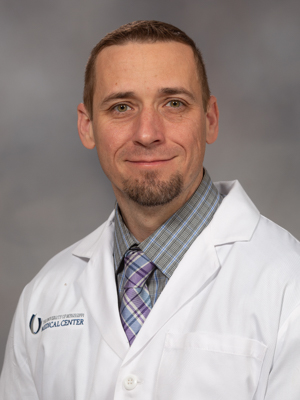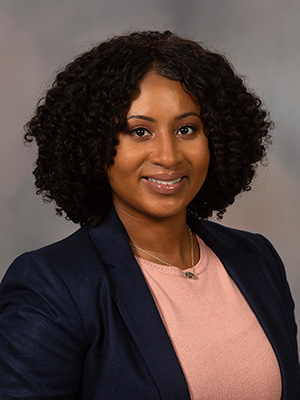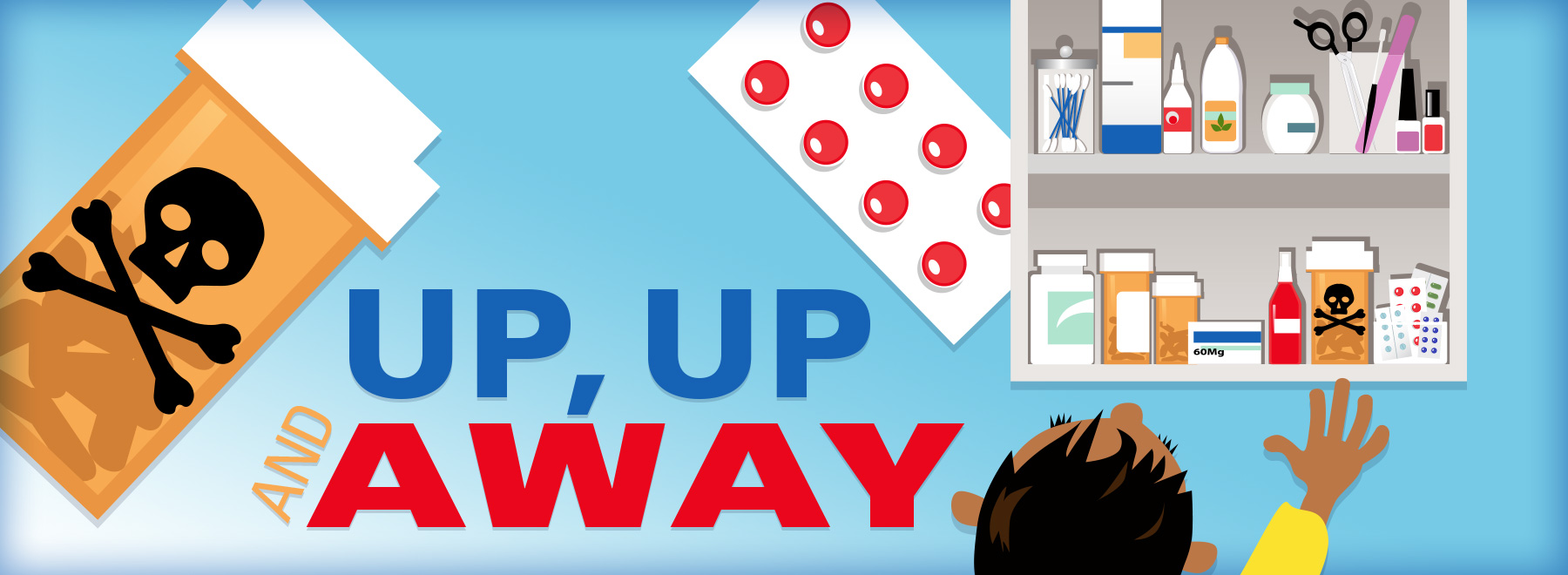Keep medications, household chemicals out of children’s reach
A household product or medication left in reach of a child and a few seconds of inattention can result in an accidental poisoning.
Poisoning is the third leading cause of death from unintentional injury among children between 1 and 19 years old, according to data from Safe Kids Mississippi. Nationally, of the 1.34 million calls to Poison Control Centers, 49 percent involved medications.

“We see a ton of accidental poisonings in children, particularly among toddlers,” said Dr. David Vearrier, professor of emergency medicine at UMMC, “Children that age have the mobility to reach objects but still have a lot of hand-to-mouth behaviors.
One of the most common ways that children reach medicines is when they’re visiting grandparents or other relatives who may not be used to having small children around, Vearrier said.
Of the emergency department visits involving American children who have ingested medications, 43 percent of those children found medications that belonged to grandparents, aunts and uncles, according to Safe Kids Mississippi.
“Grandparents’ medications are common ingestions for young children,” Vearrier said. “Older persons with arthritis may fail to engage the child safety mechanisms on the bottle or they may store medications in pill cases that have no child safety features. Grandparents and other relatives may not routinely store medications out of a child’s reach if grandchildren aren’t in the home regularly.”

The dangers of accidental poisoning through medications don’t always include prescription drugs, said Liz Foster, Safe Kids Mississippi project manager.
“Diaper rash ointments, ibuprofen, acetaminophen and vitamins are among the products that result in Poison Control Center calls,” Foster said.
Another possible danger for children is cannabis edibles, she said. “Like any other medicine, medicinal marijuana products, some of which can look like candy and desserts, should be kept away from children’s reach and view.”
More than 50,000 children are taken to emergency rooms each year after getting into medicines left within their reach, prompting the CDC and other government organizations to launch Up and Away and Out of Sight. The campaign is aimed at educating families on the dangers of medicines left in children’s reach.
Safe Kids Mississippi also offers tips for keeping medicines, household chemicals, and other hazardous items such as batteries away from children.
"Child-proofing spaces where children live or visit should include moving any items that could be hazardous out of their reach and out of sight,” Foster said.
Safe Kids Mississippi and Vearrier offer three ways to protect children from accidental poisonings.
Keep pods, cleansers and household chemicals out of reach
Whether they’re for washing clothes or washing dishes, those brightly colored detergent pods can be irresistible to young children. Keep those and other household cleansers and chemicals out of children’s reach.
Keep medications, ointments and supplements out of sight and reach
Prescription and over-the-counter medications including items such as ointments, vitamins and supplements should be in child-resistant containers and out of children’s reach.
“Kids can get into all medications, of course, but the most dangerous ingestions are typically blood pressure medications and opioids, which can cause fatal cardiovascular depression and decreased breathing (apnea), respectively,” Vearrier said.
Many poisons, but one number
Poisonings can happen from household cleaning products and medications but also from alcohol and controlled substances as well as hazards in nature such as poisonous plants and insect stings.
There are plenty of things children could get into that would warrant a trip to the Emergency Department, but only one phone number parents and grandparents should remember: (800) 222-1222. That’s the number for the Poison Control Center in Mississippi.
Call Poison Control with questions if a child has ingested a medication, cleanser or other item. Call 911 immediately if the child collapses, has a seizure, has trouble breathing, or can’t be awakened.
The above article appears in CONSULT, UMMC’s monthly e-newsletter sharing news about cutting-edge clinical and health science education advances and innovative biomedical research at the Medical Center and giving you tips and suggestions on how you and the people you love can live a healthier life. Click here and enter your email address to receive CONSULT free of charge. You may cancel at any time.



